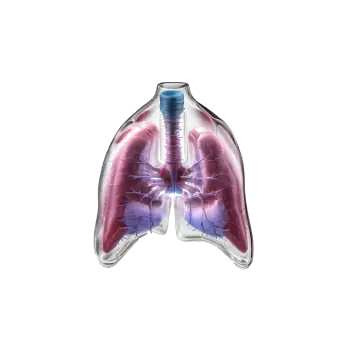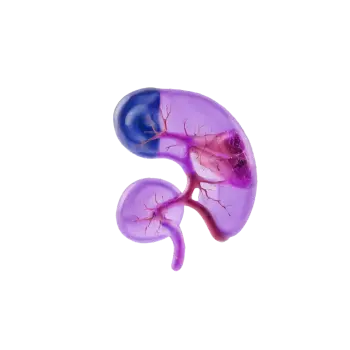Quick version
Metabolism is controlled by thyroid hormones, adrenal glands and electrolyte balance, and affects, among other things, the electrical activity of the heart. Metabolic disorders can change the heart rhythm.
Four common metabolic disorders that affect the heart:
- Hyperthyroidism (overactive thyroid): Increases heart rate and can lead to tachycardia, atrial fibrillation, and palpitations at rest.
- Hypothyroidism (underactive thyroid): Slows the heart, which can cause bradycardia, fatigue, and an increased risk of heart failure.
- Electrolyte disorders (imbalance in minerals such as potassium and magnesium): Can cause extra beats, ventricular tachycardia, or in severe cases, cardiac arrest.
- Diabetes and insulin imbalance: High or low blood sugar can cause arrhythmias, atrial fibrillation, and heart failure.
Metabolism is the body's way of converting nutrients into energy. This is primarily controlled by thyroid hormones, adrenal function and electrolyte balance – and regulates everything from body temperature to heart rhythm. In the event of a metabolic disorder, the heart's electrical signals can be affected by either an increased or decreased activity in the body's metabolism.
4 metabolic disorders that affect heart rhythm
1. Hyperthyroidism
Hypothyroidism means that you have an overactive thyroid gland that produces too much hormone (T3 and T4), which increases the speed of the body – including the heart rate.
Here's how it can affect the heart:- Tachycardia (rapid pulse)
- Atrial fibrillation
- Palpitation at rest
- Increased risk of heart complications in untreated hyperthyroidism
2. Hypothyroidism
In hypothyroidism, you have an underactive thyroid gland, which means a lack of thyroid hormone, which causes the body's systems to slow down - this also applies to the heart's rhythm.
This is how it can affect the heart:- Bradycardia (slow heart rate)
- Increased fatigue and weak pulse
- Risk of heart failure in long-term untreated hypothyroidism
3. Electrolyte disorders
Electrolytes are minerals such as potassium, sodium, calcium and magnesium, which control the electrical activity in the heart. Electrolyte imbalances can occur, for example:
- Kidney failure
- Dehydration
- Diuretic therapy
- Diabetes
- Extra beats
- Ventricular tachycardia
- Cardiac arrest in severe cases
4. Diabetes and insulin imbalance
Heart rhythm can be negatively affected by both high and low blood sugar, especially in type 1 and 2 diabetes.
Here's how it can affect the heart:- Autonomic neuropathy can lead to irregular heart rhythm
- Hypoglycemia (low blood sugar) can trigger arrhythmias
- Increased risk of atrial fibrillation and heart failure in poorly controlled diabetes
How do you know if your metabolism is affecting your heart?
It may be wise to check your metabolism if you experience palpitations, fatigue or rhythm disturbances without a clear cause. The following are common tests that can be performed:
- TSH, T3 and T4 – for assessing thyroid function
- Electrolyte status – potassium, sodium, calcium and magnesium
- Blood sugar tests – fasting glucose and HbA1c
- Kidney function and cortisol values – if endocrine disorders are suspected
During the investigation, blood tests can also be combined with an ECG that shows how the heart beats and can detect rhythm disorders, while the blood tests reveal what may be the underlying causes and affect the heart's rhythm.
A regular ECG is often enough to see if the metabolism has affected the heart's rhythm right now. For example, ongoing hypothyroidism can cause a slow heart rhythm (bradycardia) or hyperthyroidism can cause a fast rhythm (tachycardia) that is visible directly on a regular ECG.
A long-term ECG (Holter ECG) is better if symptoms come and go – for example, if you experience palpitations at certain times of the day, which a regular ECG does not pick up. It gives a broader picture of how the heart behaves over time.
How to stabilize the heart's rhythm
The treatment of heart rhythm disorders caused by metabolic disorders is adapted based on the underlying cause. In hyperthyroidism, thyrostatic drugs, radioiodine or in some cases surgery are often used to reduce the production of thyroid hormone. If the disorder is due to hypothyroidism, it is treated with levothyroxine, a synthetic thyroid hormone in tablet form. Electrolyte disorders, which can affect the heart's electrical signals, are usually corrected by adjusting diet, fluid intake, or medication. In people with diabetes, irregular heart rhythms can be due to fluctuating blood sugar levels, which are stabilized by improving blood sugar control and adjusting insulin or other medications. In many cases, the heart rhythm returns to normal once metabolism is balanced.
























